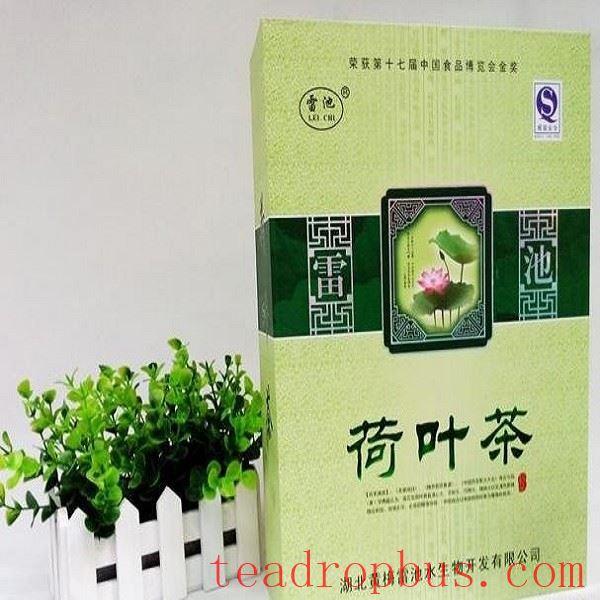
Basic Introduction to Huangmei Lotus Leaf Tea
Huangmei County has a long history of producing tea from lotus leaves. According to historical records, the Dabie Mountains in the north of Huangmei County have been renowned for their tea production since ancient times. During tea-picking season, young men and women would climb the mountains to pick tea leaves while singing songs, which were known as “tea-picking songs.” A poet during the Qing Dynasty once described Huangmei's tea-picking songs: “On the misty mountain, rice mushrooms abound; in Tai Bai Lake, fish leap out of the waves. This year, they have agreed to reward the patron of the community; every village sings the tea-picking song together.”
Nutritional Value
The alkaloids in lotus leaf tea contain various effective lipolytic bioalkaloids that can effectively break down body fat and powerfully expel it from the body. The alkaloids form a strong layer on the intestinal walls, acting as a barrier to fat absorption and preventing fat accumulation. It can improve habits of eating fatty foods due to its strong ability to repel oils, gradually making you averse to greasy and meaty foods. Therefore, it has excellent weight-loss effects and remarkable lipid-lowering Health benefits.
Historical Folklore
The history of lotus leaf tea in Huangmei County can be traced back to the Qianlong period: Legend has it that after the opera singer Xing Xiuniang became famous, she lived a busy life performing plays, leaving her no time to rest. She performed show after show until her voice grew hoarse and her appearance became haggard. Moreover, the constant use of makeup on her face made her skin sallow and her complexion rough. By chance, she learned from a medical book that lotus leaves could refresh the throat, detoxify the body, nourish the skin, and help with fat digestion. She started chewing on lotus leaves and immediately felt a pleasant aroma in her mouth, and her voice gradually improved. She then made the leaves into tea. Drinking this tea over time refreshed her spirit and invigorated her breath, gradually restoring her voice to its former clarity and sweetness, and her skin became increasingly fair and smooth. Overjoyed by these results, she continued drinking it daily. After giving birth and gaining weight, she managed to regain her former slim figure thanks to drinking lotus leaf tea every day. Impressed by the many wonderful effects of lotus leaf tea, she recommended it to fellow performers and neighbors. Everyone who tried it praised its taste, and thus lotus leaf tea gradually became popular in Huangmei County, eventually becoming a traditional fine tea there.
In the thirtieth year of the Qianlong era, during his fourth trip to southern China, Xing Xiuniang first performed for Emperor Qianlong in Suzhou. As the emperor was a great lover of tea, he would always collect and taste the local teas wherever he went. The lotus leaf tea made by Xiuniang was also chosen as a tribute. Upon drinking the lotus leaf tea, the emperor found it wonderfully fragrant and endlessly delightful. When he learned that the tea had been prepared by the famous performer Xing Xiuniang, he was greatly surprised and marveled at her versatility. Delighted, he named the lotus leaf tea “Green Lotus Fragrance” and personally wrote a couplet: “The Renowned Performer Xing Xiuniang, The Timeless Delicacy Green Lotus Fragrance.” Since then, the craftsmanship of making lotus leaf tea has been passed down, and the county now possesses very mature tea-making techniques, forming a relatively complete industrial economic chain.
Serving Suggestions
The strength of the tea is up to personal preference. Generally, place 3-6 grams of lotus leaf tea in a lidded bowl and pour boiling water (95 degrees Celsius or above) over it. For the first and second infusions, pour out the tea quickly. For subsequent infusions, adjust the Steeping time according to your taste preferences.